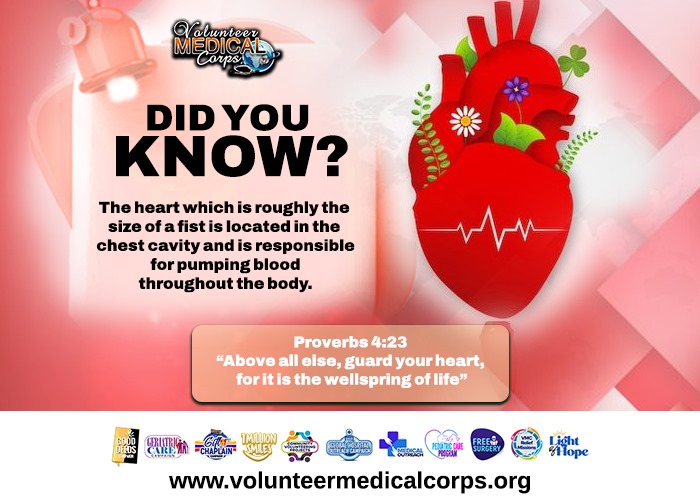
Do you know that the heart which is roughly the size of a fist is located in the chest cavity and is responsible for pumping blood throughout the body.
In Proverbs 4:23 King Solomon said it best: “Above all else, guard your heart, for it is the wellspring of life”. The heart, often described as the engine of life, plays a great role in maintaining the body’s overall health and functionality. This remarkable organ, roughly the size of a fist, is located in the chest cavity and is responsible for pumping blood throughout the body. Understanding its functions is essential for appreciating its critical role in sustaining life.
At its core, the primary function of the heart is to circulate blood, delivering oxygen and nutrients to tissues while removing waste products such as carbon dioxide. This process is vital for cellular metabolism and overall bodily function. The heart achieves this through its four chambers: the right atrium, right ventricle, left atrium, and left ventricle. Deoxygenated blood returns from the body to the right atrium, moves into the right ventricle, and is then pumped to the lungs. Here, it picks up oxygen and releases carbon dioxide before returning to the left atrium. The left ventricle, the strongest chamber, then pumps the oxygenated blood out to the rest of the body through the aorta.
In addition to blood circulation, the heart plays a crucial role in regulating blood pressure. It works in conjunction with blood vessels to ensure that sufficient pressure is maintained for optimal blood flow to all organs and tissues. This regulation is vital for delivering oxygen and nutrients, particularly during physical activity when the body’s demands increase.
Another significant function of the heart is its ability to adapt to varying demands through its electrical system. The heart’s rhythm is controlled by electrical impulses generated in the sinoatrial (SA) node, often referred to as the heart's natural pacemaker. This system allows the heart to adjust its rate in response to physical activity, stress, and hormonal changes, ensuring that the body receives adequate blood flow under different conditions.
Moreover, the heart's health is closely linked to overall well-being. Factors such as diet, exercise, and stress management directly influence heart function. A heart-healthy lifestyle that includes regular physical activity, a balanced diet rich in fruits, vegetables, and whole grains, and stress-reducing practices can significantly enhance cardiovascular health.
In conclusion, the heart is truly the engine of life, tirelessly working to sustain our bodies by circulating blood, regulating pressure, and adapting to our needs. By prioritizing heart health, we not only enhance our well-being but also ensure that this remarkable engine continues to power our lives for years to come.
Admin